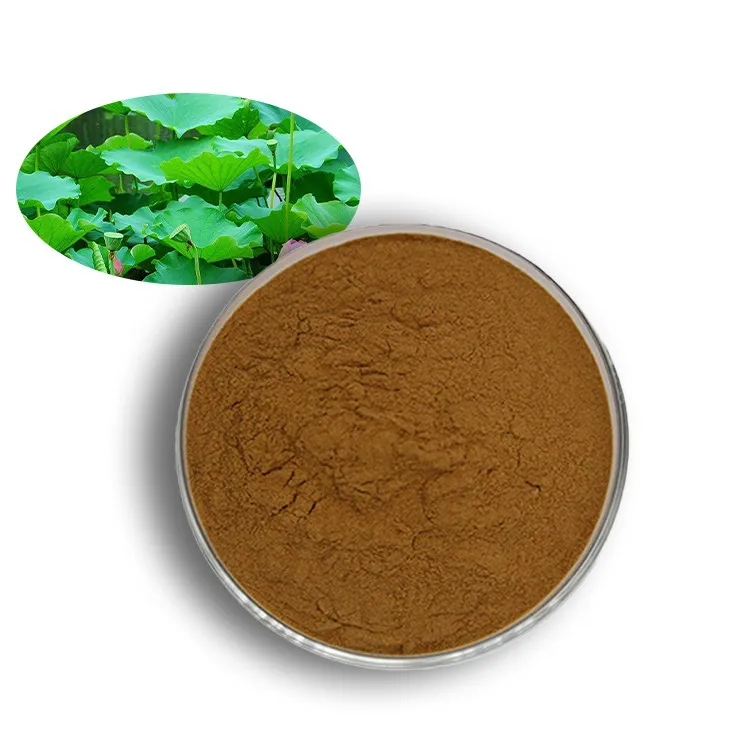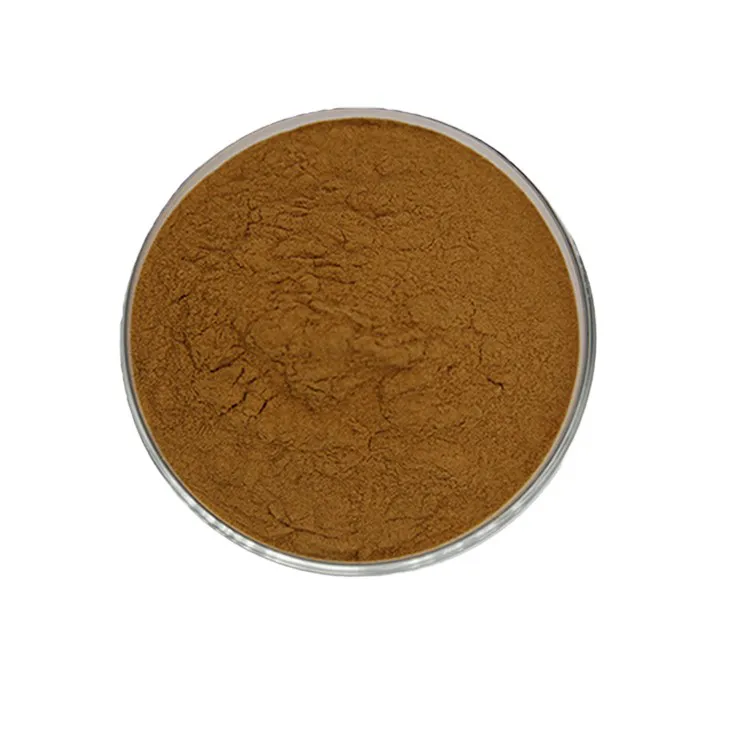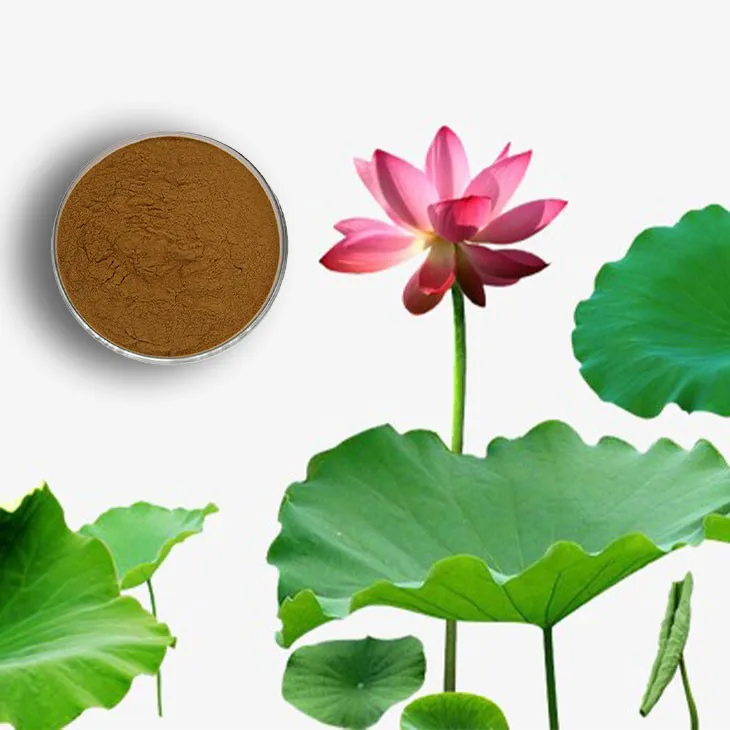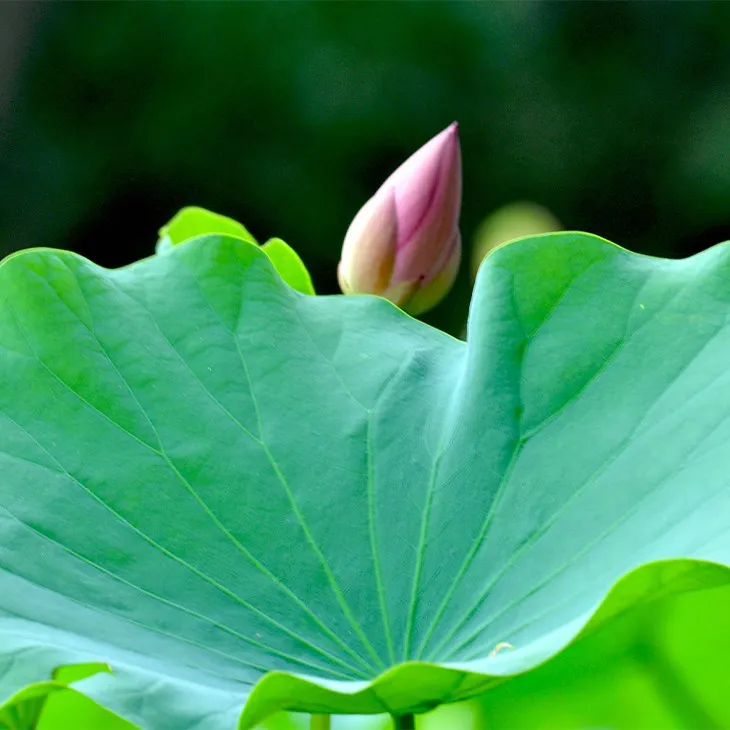- 0086-571-85302990
- sales@greenskybio.com
Lotus Leaf Extract: The Herbal Product Trend You Should Know.
2024-12-18

1. Introduction
In recent years, the herbal product market has witnessed a remarkable trend - the increasing popularity of Lotus leaf extract. This natural substance, derived from the lotus plant, has caught the attention of consumers and researchers alike. With its diverse range of potential health benefits and applications, it is no wonder that it is emerging as a significant player in the world of herbal products.

2. The Richness of Bioactive Compounds in Lotus leaf extract
Lotus leaf extract is a treasure trove of bioactive compounds. These are natural substances that have a biological effect on living organisms. Some of the key bioactive compounds found in lotus leaf extract include:
- Flavonoids: These are well - known for their antioxidant properties. Flavonoids in lotus leaf extract can help in neutralizing free radicals in the body. Free radicals are unstable molecules that can cause damage to cells, and by combating them, flavonoids contribute to overall health and well - being.
- Alkaloids: They play a role in various physiological processes in the body. Alkaloids in lotus leaf extract may have potential effects on the nervous system and metabolism.
- Tannins: Tannins are astringent substances. In lotus leaf extract, they may have implications for digestion and can also contribute to the antioxidant capacity of the extract.

3. Potential Health Benefits
3.1 Weight Management
One of the most talked - about benefits of lotus leaf extract is its potential role in weight management. In modern society, where obesity is a growing concern, natural solutions for weight control are highly sought after.
The extract may help in fat metabolism. It is believed that certain compounds in the lotus leaf extract can influence the way the body processes fats. For example, it may enhance the breakdown of stored fat and reduce the absorption of dietary fat. This dual action could potentially lead to a reduction in overall body fat levels over time. However, it is important to note that while lotus leaf extract may be a helpful addition to a weight management plan, it should not be considered a substitute for a healthy diet and regular exercise.
3.2 Antioxidant Properties
The antioxidant properties of lotus leaf extract are of great significance. As mentioned earlier, the presence of flavonoids and other antioxidant - rich compounds means that the extract can combat free radicals in the body.
Free radicals are generated through normal metabolic processes as well as exposure to environmental factors such as pollution, radiation, and certain chemicals. If left unchecked, they can cause oxidative stress, which has been linked to a variety of health problems including heart disease, cancer, and premature aging. By scavenging free radicals, lotus leaf extract can help to protect cells from damage and maintain the body's normal physiological functions.
3.3 Digestive Health
The tannins present in lotus leaf extract may have a positive impact on digestive health. Tannins are known for their astringent properties, which can help to tighten and tone the tissues in the digestive tract.
They may also play a role in reducing inflammation in the digestive system. In addition, lotus leaf extract could potentially stimulate the production of digestive enzymes, which are essential for the proper breakdown and absorption of food. This can lead to improved digestion and better nutrient absorption, ultimately contributing to overall health.
3.4 Blood Sugar Regulation
Some preliminary research suggests that lotus leaf extract may have a role in blood sugar regulation. It is thought that certain compounds in the extract can interact with the body's mechanisms for controlling blood sugar levels.
For example, it may enhance the sensitivity of cells to insulin, the hormone responsible for regulating blood sugar. By improving insulin sensitivity, the body can more effectively transport glucose from the bloodstream into cells, where it can be used for energy. However, more in - depth research is needed to fully understand the potential of lotus leaf extract in this area.

4. Applications in the Beauty Industry
The use of lotus leaf extract in the beauty industry is also on the rise. This is due to its potential benefits for skin health.
4.1 Anti - Aging Effects
The antioxidant properties of the extract play a crucial role in its anti - aging effects. By neutralizing free radicals, lotus leaf extract can help to prevent damage to skin cells caused by oxidative stress.
This can reduce the appearance of wrinkles, fine lines, and age spots. Additionally, it may promote the production of collagen, a protein that is essential for maintaining the firmness and elasticity of the skin. As we age, collagen production naturally declines, and using products containing lotus leaf extract may help to slow down this process.
4.2 Skin Hydration
Lotus leaf extract may also contribute to skin hydration. It has the ability to retain moisture in the skin, keeping it soft and supple. This is important for maintaining a healthy skin barrier, which can prevent moisture loss and protect the skin from external irritants.
Some skincare products containing lotus leaf extract claim to provide long - lasting hydration, making the skin look and feel more youthful.
4.3 Acne and Skin Inflammation
The anti - inflammatory properties of lotus leaf extract can be beneficial for treating acne and reducing skin inflammation. Acne is often caused by inflammation in the sebaceous glands, and the extract may help to calm this inflammation.
It can also reduce redness and swelling associated with acne breakouts. Moreover, its antibacterial properties may help to prevent the growth of acne - causing bacteria on the skin.

5. How Lotus Leaf Extract is Incorporated into Products
Lotus leaf extract can be found in a variety of products in the herbal and beauty markets.
5.1 Dietary Supplements
In the form of dietary supplements, lotus leaf extract is often available in capsules or tablets. These are typically taken orally and are designed to provide the potential health benefits associated with the extract. Consumers who are interested in using lotus leaf extract for weight management, blood sugar regulation, or general health support may choose to take these supplements. However, it is important to follow the recommended dosage instructions and consult a healthcare provider before starting any new supplement regimen.
5.2 Skincare Products
The beauty industry has incorporated lotus leaf extract into a wide range of skincare products. These include:
- Moisturizers: As mentioned earlier, lotus leaf extract can help with skin hydration, so it is a popular ingredient in moisturizers. These products are designed to keep the skin moisturized and prevent dryness.
- Serums: Serums are concentrated formulations that can deliver a high dose of active ingredients to the skin. Lotus leaf extract - containing serums may target specific skin concerns such as anti - aging or acne treatment.
- Masks: Face masks are a popular skincare product, and those containing lotus leaf extract can provide a variety of benefits. For example, they may hydrate the skin, reduce inflammation, or improve the overall appearance of the skin.
6. Considerations and Precautions
While lotus leaf extract offers many potential benefits, there are also some considerations and precautions to keep in mind.
6.1 Quality and Purity
When choosing products containing lotus leaf extract, it is important to ensure the quality and purity of the extract. There may be differences in the extraction methods used by different manufacturers, which can affect the composition and effectiveness of the extract. Look for products from reputable brands that adhere to high - quality standards.
6.2 Allergic Reactions
Some individuals may be allergic to lotus leaf extract. Before using any product containing the extract, it is advisable to perform a patch test on a small area of skin. If any signs of irritation, redness, or swelling occur, discontinue use immediately.
6.3 Interaction with Medications
If you are taking medications, especially those for diabetes, blood pressure, or other chronic conditions, it is important to consult your doctor before using lotus leaf extract. There may be potential interactions between the extract and certain medications, which could affect the effectiveness or safety of the treatment.
7. Conclusion
In conclusion, lotus leaf extract is a herbal product trend that is worth paying attention to. With its rich bioactive compounds and potential health and beauty benefits, it has a lot to offer. However, as with any herbal product, it is important to approach it with caution, ensuring that the products are of high quality and that any potential risks are considered. Whether for weight management, antioxidant protection, or skin health, lotus leaf extract is emerging as a versatile and promising ingredient in the world of herbal products and the beauty industry.
FAQ:
What are the bioactive compounds in lotus leaf extract?
Lotus leaf extract contains various bioactive compounds such as flavonoids, alkaloids, and phenolic acids. These compounds contribute to its potential health benefits, including antioxidant and fat - metabolism - promoting effects.
How does lotus leaf extract help with weight management?
It may assist in weight management by influencing fat metabolism. Some components in the lotus leaf extract are thought to enhance the body's ability to break down fats, which could potentially lead to a reduction in body fat levels over time.
What are the antioxidant benefits of lotus leaf extract?
The antioxidant properties of lotus leaf extract allow it to combat free radicals in the body. Free radicals are unstable molecules that can cause damage to cells and contribute to various health problems. By neutralizing these free radicals, lotus leaf extract may help protect the body from oxidative stress - related diseases.
How is lotus leaf extract used in the beauty industry?
In the beauty industry, lotus leaf extract is emerging for its potential role in skin health. It may be used in skincare products due to its antioxidant properties, which can help protect the skin from damage caused by environmental factors such as UV radiation and pollution. Additionally, it may have anti - inflammatory effects on the skin, potentially reducing redness and irritation.
Is lotus leaf extract safe for consumption?
When used in appropriate amounts, lotus leaf extract is generally considered safe for consumption. However, as with any herbal product, it is important to consult a healthcare professional before starting to use it, especially if you have pre - existing health conditions or are taking other medications.
Related literature
- The Bioactive Compounds and Health Benefits of Lotus Leaf Extract"
- "Lotus Leaf Extract: A Promising Ingredient for Weight Management"
- "Antioxidant Properties of Lotus Leaf Extract and Their Implications for Health"
- "The Role of Lotus Leaf Extract in the Beauty Industry: A Review"
- ▶ Hesperidin
- ▶ citrus bioflavonoids
- ▶ plant extract
- ▶ lycopene
- ▶ Diosmin
- ▶ Grape seed extract
- ▶ Sea buckthorn Juice Powder
- ▶ Beetroot powder
- ▶ Hops Extract
- ▶ Artichoke Extract
- ▶ Reishi mushroom extract
- ▶ Astaxanthin
- ▶ Green Tea Extract
- ▶ Curcumin Extract
- ▶ Horse Chestnut Extract
- ▶ Other Problems
- ▶ Boswellia Serrata Extract
- ▶ Resveratrol Extract
- ▶ Marigold Extract
- ▶ Grape Leaf Extract
- ▶ blog3
- ▶ blog4
- ▶ blog5
-
Yam Extract
2024-12-18
-
Saffron Extract Powder
2024-12-18
-
Shikone Extract
2024-12-18
-
Avocado Extract Powder
2024-12-18
-
Kupilu Extract
2024-12-18
-
Marigold Extract
2024-12-18
-
Curcumin Extract
2024-12-18
-
Shikonin
2024-12-18
-
Lotus leaf extract
2024-12-18
-
Curcumin
2024-12-18




















